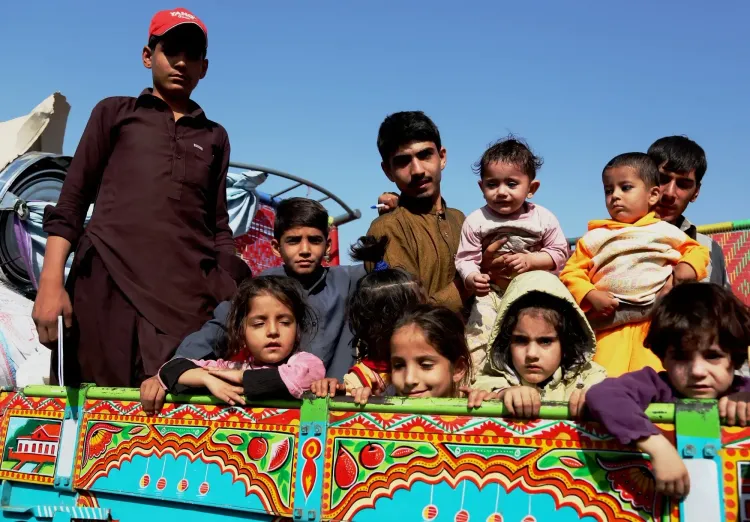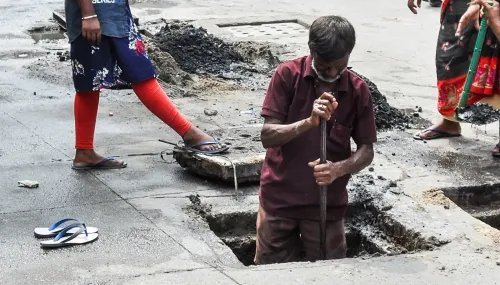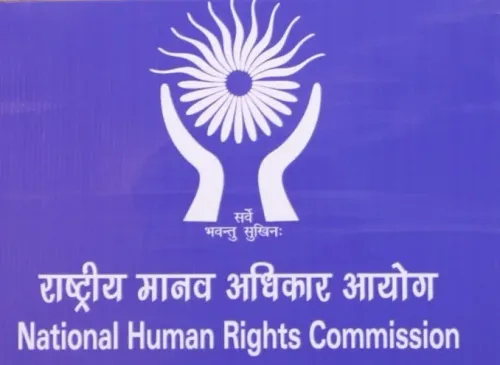Are Afghan Refugees in Pakistan Facing Forced Returns?

Synopsis
Key Takeaways
- Afghan refugees in Lower Dir District face forced repatriation.
- Authorities have halted all facilities previously provided.
- Transport arrangements are being made for refugees to return to Afghanistan.
- Over 40,000 refugees are currently residing in precarious conditions.
- Humanitarian concerns are paramount as tensions rise.
Islamabad, Oct 22 (NationPress) - Afghan nationals residing in the refugee camps of Lower Dir District, located in the Khyber Pakhtunkhwa province of Pakistan, have been officially notified by local officials that previous amenities provided to them will no longer be accessible and that they are to be relocated to the Torkham border.
Reports from local media indicate that the Assistant Commissioner of Timergara, Zaid Safi, along with District Administrator Humayun Khan, held discussions with leaders of the Afghan refugee community on Wednesday. They conveyed that all refugee camps in Pakistan's Lower Dir had been de-notified, resulting in the cessation of all previously granted facilities.
Safi announced on Tuesday that the administration would facilitate transport for Afghan refugees to travel to the Torkham border. He cautioned that if the refugees declined to return voluntarily, the government would resort to force, as reported by Pakistan's leading daily Dawn. He expressed hope that such measures would not be necessary and encouraged Afghan refugees with outstanding loans to provide their details to his office.
Following a directive from the federal government, the three camps in Chakdara, Samarbagh, and Timar have been officially closed, and the district administration has intensified efforts to facilitate the return of refugees. Speaking at a press briefing in Timergara, the district administrator for Afghan refugees, Humayun Khan, stated that over 40,000 Afghan refugees, comprising approximately 4,500 families, currently reside in these camps and rented accommodations in Lower Dir.
To date, 565 individuals from 100 families have voluntarily returned to Afghanistan, while the local administration has appealed to the provincial government for funds to arrange transport for the refugees heading to Torkham. According to official records, 33,681 refugees in Lower Dir possess registration cards, while an additional 6,100 hold Afghan citizen cards. Furthermore, more than 3,000 Afghan refugees are residing in Upper Dir.
Recently, police reported that Pakistani authorities, in conjunction with law enforcement, demolished over 1,000 homes abandoned by Afghans in the UN-designated Afghan camp at Karachi's Sohrab Goth within the past five days.
In an interview with Dawn, SSP-West Tariq Illahi Mastoi stated that approximately 1,200 homes out of more than 3,000 had been destroyed since the operation commenced on October 15. He noted that over 14,000 Afghans had already vacated the UN-designated camp.
Mastoi indicated that the operation continued on October 19 and is expected to conclude within a few days. He observed that law enforcement officials encountered resistance from suspected land mafia members on the first day, but subsequent actions proceeded without obstruction.
SSP Mastoi emphasized that this operation aligns with the federal government's policy as certain factions attempted to illegally occupy land, raising concerns regarding public order.
Previously, around 15,680 Afghans were housed in the camp, according to officials. Of these, 14,296 have returned to Afghanistan, while 1,384 remain and are being gradually repatriated to their homeland.









